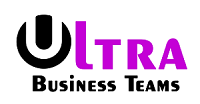Password exploits are the widespread means that threat actors use to infiltrate an organization. Whether it’s malware threat, cameras hacked, phishing scams, virus attacks, or vishing, pharming, or social engineering, these are some serious security concerns that can tear off the entire monetary and identity structure of an organization. In order to protect a firm as much as possible, the following ways of password protection must be adopted.
- Length and Exclusivity are Important
If your password is a guessable word that’s no more than 8 simple characters long, hackers will try to decode it. They even apply advanced password hacking methods where they use the sound of keys when a password is being typed to guess the alphabets. Which is why the following precautions are very necessary.
- Make your password very long. 12-15 characters are preferred.
- Save the passwords in a password management application. When fed in such apps, you don’t need to type them. They can be copy pasted. Thus, it’s not possible for hackers to use the sounds of keys to identify the password.
- Further complicating the password is a cherry on the cake – mix them with symbols, uppercase letters, numbers, and lowercase letters.
- Keep Them to Yourself
You saved all the passwords in a password manager app, but you shared it with other people. What exclusivity will remain to them? Practically speaking, none. That’s why you should keep your passwords to yourself. Also, the following precautions are equally important.
- If you ever change your password, don’t go back to reusing an old password no matter if it was strong. You changed it for a reason. So, don’t reuse it come what may.
- Don’t use the same password for every device. Each device should have its own password.
- Add MFA Security
MFA is multi-factor authentication. When it’s added as a security measure alongside the backdoor password, the devices become highly secured. Here’s how it happens.
- 2 or 3 extra security layers are added.
- The first layer is the backdoor password.
- If hackers somehow manage to go past the backdoor password, they’ll be hoping to enter the system directly. But that’s not going to happen if MFA is enabled in the system.
- Hackers will have at least 3 more security doors in front of them. And they will all have to unlock each one of them to access the system.
And, to be honest, they don’t prefer investing a lot of time in trying to enter such highly secured systems. Which is why they mostly leave such systems alone.
So, to sum up, being responsible yourself is the key to protecting your assets.


